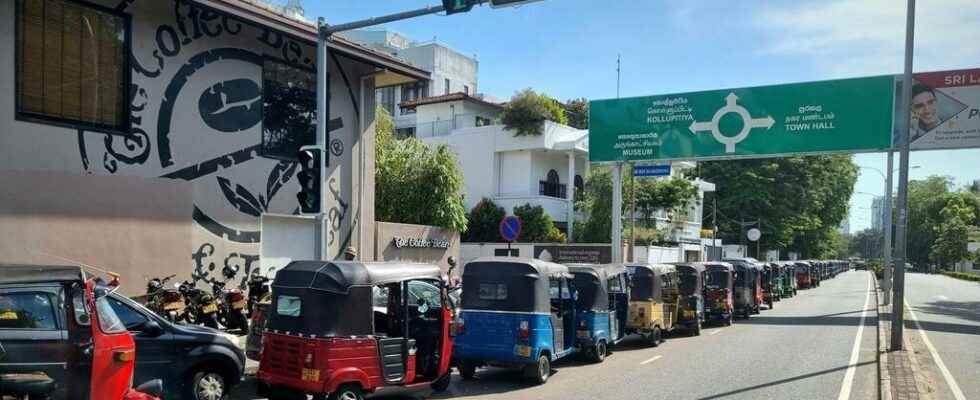In Sri Lanka, the parliament met on Saturday July 16 to begin the election of a new president after the escape of Gotabaya Rajapaksa. But during this time, all the signals are red for the population: it faces an almost total shortage of oil and catastrophic food inflation, unable to pay for the most essential products.
From our special correspondent in Colombo,
Six million Sri Lankans, more than a quarter of the population, now face food insecurity, according to the UN’s World Food Programme. The stalls are empty, food prices are exploding and the situation is expected to deteriorate further. No one is spared, explains Surani Weerasinghe, mother of two:
” I come from a privileged family and before I could buy my children everything they wanted to eat. But today we have to restrain ourselves. I can no longer afford such simple things as butter or cheese. To cook, I now have to use wood. »
Cooking wood, instead of gas, because the source of all the problems is the total shortage of fuels which strikes the Island of the Indian Ocean. Sri Lanka is now unable to pay to import enough.
Jérôme is a Rickshaw driver, the small local taxis, met in the queue that stretches for miles in front of one of the few service stations open: “ Do you imagine that I now have to wait five days in line before getting a half-full in my tank? Five days during which I have to eat and relieve myself in the street… »
While several oil tankers have just docked in Sri Lanka, the government has promised a weekly fuel quota per vehicle with a QR code system. Waiting for a new government, Acting Prime Minister Ranil Wickremesinghe announced an emergency plan to provide basic food to the population.
These measures have been put on the table several times. And given the limited state resources, they should not fundamentally change the daily ordeal of the people of Sri Lanka.
